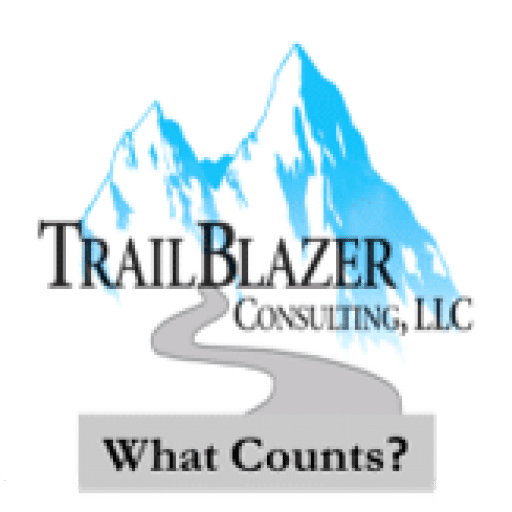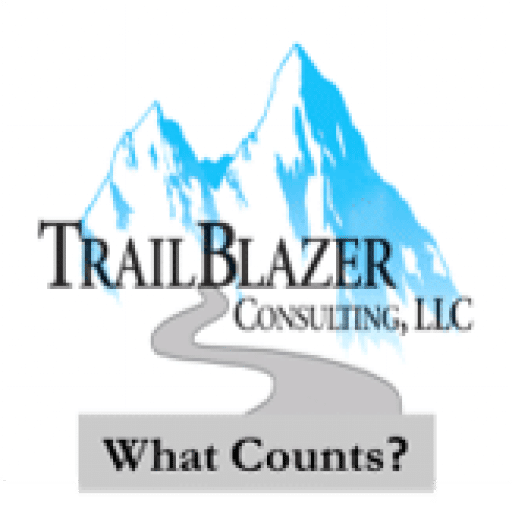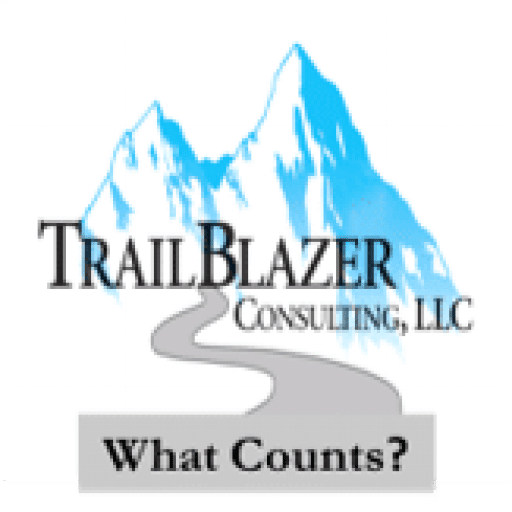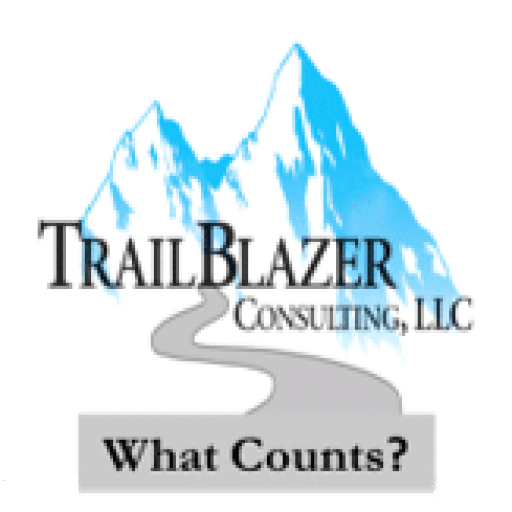[00:00:01] Speaker A: Partnering with your information technology department.
Hello. Thank you for joining us. This is what counts, a podcast created by Trailblazer Consulting. Here we highlight proven solutions developed through our experience working with companies across various industries. And we talk about how you can apply these solutions to your company. We share our experience solving information management challenges like creating and implementing your records retention schedule, creating an asset data hierarchy, helping with email management, helping with contract management, or partnering with your IT department. This is Lee. In this episode, Moore and I will give you some ideas and our experience with partnering with it. Moore this is a fascinating subject.
It's more about relationships than it is technical. So how do you want to start this off?
[00:00:52] Speaker B: I think that's a great place to start, Lee. It is about relationships. I think it's also about communication. And we have talked at different points along the last couple of years. We've talked about translations and being able to take the needs of the business, the needs of regulations, the needs of it all into account. And how do we do that, and how do you help everybody understand each other? So when it comes to partnering with it, if you're in the information governance space and you have that responsibility in your company, it are going to be really good allies for you. In some companies, the information governance function actually sits in the IT department, but that isn't always the case. And it's frequently a shared responsibility between it and legal because you have that legal requirement. People think about the regulatory side of this. What are the laws around? How long do you have to keep records?
What a lot of people don't think about as much is when we're talking about electronic information, how hard is it to keep records or how easy? But the partnering with the IT department can help you get a better handle on that.
For instance, if you are worrying about how to keep a database system going, it is going to think about backing it up, making sure that you have Internet access to it, making sure that all the security patches are around it, so that you have only the right people have access to the system, that it's not wide open to the Internet somehow.
These are things that are totally in the wheelhouse of the IT department that are critically important to you and to the business, but that you don't know how to do on your own. Your job from an information governance perspective is identifying what do you need and helping the business to identify what you need. And how do you translate that to something that an IT department can carry out?
So we sometimes go ahead.
[00:03:10] Speaker A: Sorry, is this where we talked about learning different languages like Maura is able to speak it, she's able to speak human resources, she's able to speak marketing.
[00:03:22] Speaker B: It is about that. And one of the things I was going to say is that there's like this old school paradigm of the business has requirements and it has to do the design to make it happen. And in good organizations, there's a lot of back and forth between the people with the business need and the people with the technology expertise to make the two work together.
In some organizations, however, you get this, I like to call it the throw it over the wall mentality, where it sits on their side behind this imaginary wall, taking care of systems. They're keeping servers going, they're making sure that security patches are updated and everything's working.
But the business is over here trying to figure out how to run their business.
And the more and more that we continue to depend on information, dynamic information, integrated information systems that contain information that represents the same business but comes at it in different directions. And you actually need to understand all of it in order to get a full picture.
The business is not necessarily the best place to try and define all of that. They know what they need, they know the questions they want to answer, and they know the type of data that they need to get back. But they're not the experts on today's advanced and sophisticated technology platforms and applications. They need the help of the IT department. So that throw it over the wall attitude of you business. Go write down your requirements, then you'll give them to us and we'll tell you, how can we make that happen?
That's a very slow process, and it often doesn't get you a great response because the business doesn't know how to write it. So you're talking about that translation function. You need somebody in the middle there who can listen to the business, talk about their needs in terms of the business, and translate those into technology requirements that your IT department can help you fulfill.
And that's a critical element. And that is a place where I think information governance professionals are actually really well suited to be that bridge between the two groups. What do you think about that?
[00:05:50] Speaker A: I think information governance professionals who understand information technology and how it's being used today would definitely be a key person to bridge that gap. You don't have to be a programmer. That's not what I'm getting at. What I'm getting at is someone like one of the employees that we had before. He could actually program, he could write in different languages and so forth, but he also had the side where he understood the users. He understood what functionality an individual needed to get their job done. And that's the piece that's missing when you just throw requirements over the cubicle wall to an IT individual to create something.
[00:06:36] Speaker B: I agree. It's the information governance professional. To be good at your job, you have to understand the business because a single piece of paper, a single document, a single row of data in a database, a set of data in a database, the data itself requires context. Why was it created? What do you use it for in the business? How do you rely on it to make decisions or to document a transaction or provide evidence of some action that your company took? All of that context is what makes pieces of data into records. So in order to design an information governance program that will really support your business, where you are helping your business not only meet all of their legal and regulatory requirements, but actually take advantage of the type of data, the sets of data that help you run the business better. So if you're in an infrastructure organization, you have responsibilities to run things safely. And depending on what type of infrastructure you're talking about, you can have, there can be massive risk there. So if you're building a well for a farm, the risk is it'll dry up and they'll be, and the crops will die. If you're building a water treatment plant for a mid sized city, the risk is contaminants get in the water and people get sick. And so from an information governance perspective, you can understand the type of information that your operations team needs. Are they trying to make sure the plants don't die or are they trying to make sure people don't get sick?
Different levels of contaminant, different levels of volume, you move into a commercial setting where now you're managing an energy company. If somehow you're the information governance person for an energy company and you're say, a transporter, you're transporting gas through a pipeline or liquefied natural gas on a barge, or trying to connect a renewable energy source to the grid? How that connectivity happens, whether your throughput is what's expected, your customers, both the producers and the recipients, they're going to expect certain levels of responsiveness, certain levels of volume and throughput. The data that your operations team needs to make sure things are running and the data that your commercial team needs to make sure that they are delivering what they promised and getting paid for it. That's the whole business data environment.
Your IT team is on the hook to provide that. The platform that makes all that work, that you in your information governance role are helping to translate what is possible from a technology perspective to the business. Who may be asking questions that, yeah, that'd be nice to answer, but if you're not going to save data at the granular, at that level of granularity, or you're not going to save that data at all, or you're saving it in a format that you can no longer access, then sorry, you're not going to get those answers. So it goes both in both directions. It has huge responsibility and the IG professional is helping the business, is helping translate those responsibilities to the business.
[00:10:07] Speaker A: It's almost like adding the "why".
[00:10:11] Speaker B: Yes. Yes, I like that.
I could go on and on, but I won't today. I want to save for our next episode a discussion of when you're doing a system upgrade and it seems like the easiest thing to do is just start with day forward. Here's our new system. We're going to start putting new data in it. Everything's beautiful and clean.
That old data that's in that old system, I hate that system. I never want to see it again. Could you just keep it over, keep it over there in the corner.
And there's some implications to that for, especially for the IT professionals, but for the whole business. And we're going to talk about that next time.
[00:10:53] Speaker A: Excellent. If you have any questions, please send us an email at
[email protected] or look us up on the web at www.trailblazer.us.com. Thank you for listening and please tune into our next episode. Also, if you like this episode, please be a champion and share with people in your social media network. As always, we appreciate you, the listeners. Special thanks goes to Jason Blake who created our music.
[00:11:22] Speaker B: Thanks, Lee. Till next time.




